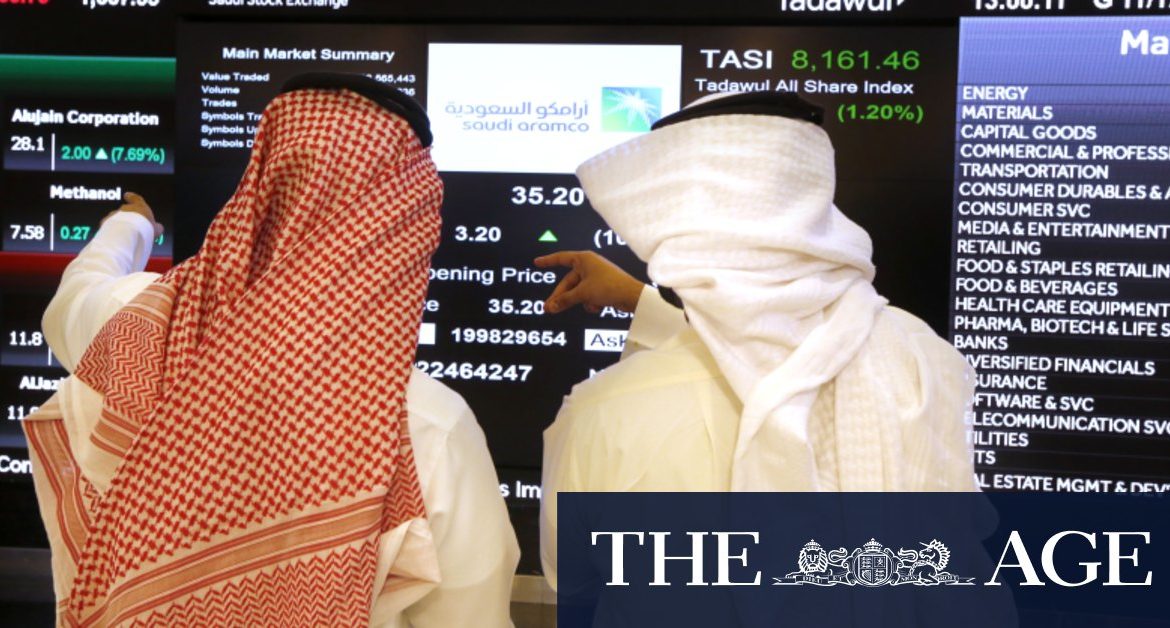Tuesday’s deal was also helped by the more bullish sentiment among investors following this month’s progress on coronavirus vaccines. And while some bond traders are wary that U.S. President-elect Joe Biden might regulate oil and gas companies more, Aramco benefits from having such low production costs, according to Todd Schubert, head of fixed-income research at Bank of Singapore.
The Dhahran-based company, rated A1 by Moody’s Investors Service, has slashed spending, cut jobs, and is considering selling some assets as it looks to save money for its shareholder payouts. Despite these efforts, its gearing – a measure of debt as a percentage of equity – has increased to 21.8 per cent, above its target range of 5 per cent to 15 per cent. Debt also rose because the company took on loans to pay for a $US69 billion acquisition of Saudi Basic Industries, a chemical maker, earlier this year.
Aramco listed shares on the Saudi stock exchange last December. It said it would pay an annual dividend of $US75 billion for at least five years after the initial public offering. It may need to tap the bond market again, given the size of those commitments, according to Bloomberg Intelligence.
The dividend pledge has helped prop up Aramco’s shares. They’ve risen 0.7 per cent this year, while those of rivals such as BP Plc and Royal Dutch Shell have fallen more than 40 per cent.
Still, Saudi Arabia’s reliance on Aramco to support its fiscal needs will weigh on the company’s balance sheet and “risks placing increasing stress on its credit profile,” said Jaimin Patel, a BI analyst.
Loading
The lead banks on Tuesday’s bond sale were Citigroup, Goldman Sachs, HSBC Holdings, JPMorgan Chase & Co, Morgan Stanley and NCB Capital.
Aramco raised $US12 billion in its debut Eurobond sale last year and attracted around $US100 billion of orders.
Bloomberg







